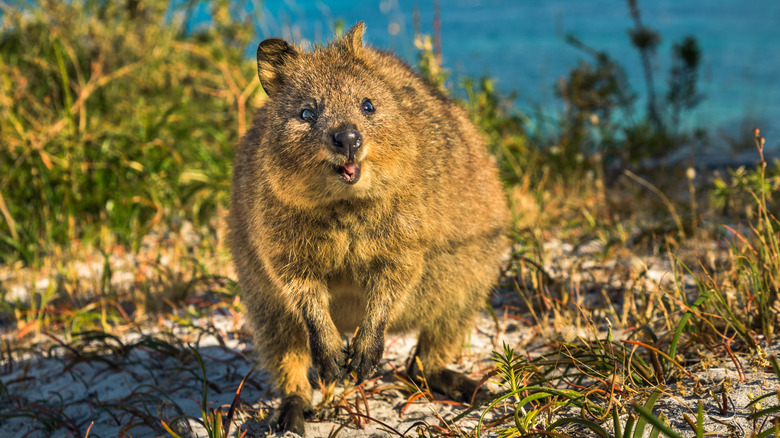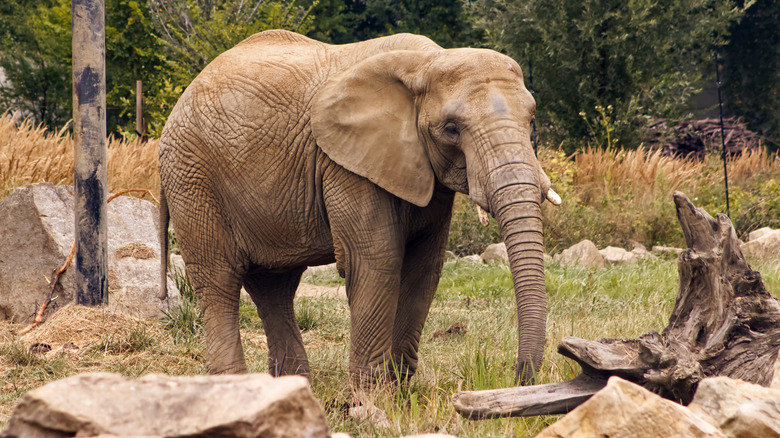Heartbreaking Things That Only Happen To 'Gentle' Wild Animals
Many people want to get close to wild animals, and with so many adorable creatures, such as the red panda and penguin, it's easy to understand why. While many keep their distance, some wild animals seem to love humans, often appearing friendly and gentle. Sadly, for these kind creatures, they often end up being exploited or placed in unsafe situations and danger.
Known as the "world's happiest animal," the quokka will approach humans with a naturally trusting nature. Yet, the adorable, gentle creature can contract human diseases if touched; for a vulnerable species, this makes its natural curiosity a detriment. In the seas, the Beluga Whale, known for its willingness to approach people and occasional heroism in saving people from drowning, has seen its population decline due to overhunting in certain areas. The exotic animal trade has also led to neglect, with creatures like the slow loris sold as docile pets. However, that gentleness only comes after poachers defang them so they cannot bite; many die during this process.
It can be tempting to want to get close to a wild animal that seems gentle, but often these interactions have adverse effects, even when done with good intentions. Getting an animal accustomed to people can increase its risk of exposure to disease and aggressive behavior. Trying to capture that perfect social media-ready picture can increase an animal's popularity, leading others to exploit it. For animal enthusiasts, it is important to play an active role in ensuring the safety of Earth's gentle creatures.
How we can protect these gentle animals
There has been a shift in how people approach animal health and safety over time. These efforts are evident in actions such as the push to rescue young elephants from the heartbreaking lives they live in circuses. Still, it wasn't until 2016 that Ringling Bros. and Barnum & Bailey Circus committed to retiring its elephants.
Education on pet ownership has also been key to the care given to exotic pets originally taken from the wild. Notably, the macaw's life cycle can reach up to 70 years in captivity, making it an heirloom pet. Not having someone to pass down a parrot to can lead to the gentle bird living its twilight years in a shelter, a sad reality many pet owners try to avoid. With education, potential owners can understand the responsibility they're taking on.
When it comes to wild animals, no matter how gentle they may seem toward people, the safest approach is always to keep your distance. Touching, feeding, or getting as close as possible for a picture can be dangerous for both the animal and the human. For those who want to interact with wild animals, consider visiting local animal sanctuaries. Many offer educational programs that allow you to get close to the animals while learning about them and supporting their rehabilitation or conservation efforts.

